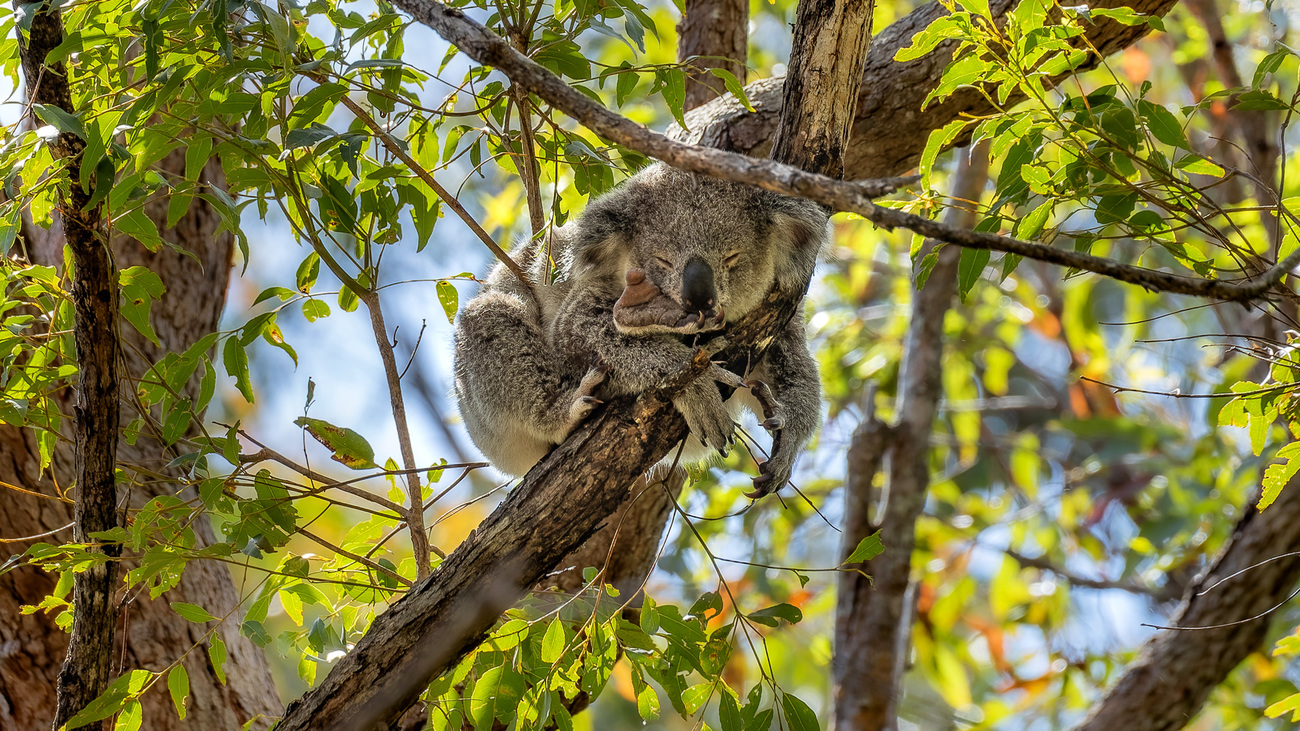Press releases
40 years after the whaling ban – whales continue to die
Read moreLockyer community and wildlife to be first to benefit from new climate corridors project

Queensland’s Lockyer region will be the first to benefit from a new project to create biodiverse climate corridors to help wildlife adapt and communities build resilience to the impacts of climate change.
Koala Climate Corridors, a new project spearheaded by the Great Eastern Ranges and IFAW (International Fund for Animal Welfare) will work with local partners to reconnect and regenerate habitats to help koalas, rainbow bee-eaters and other wildlife adapt to climate change by providing them with safe spaces to move as conditions and food sources shift.
The first climate corridor will be pioneered in the Lockyer along the western ‘horn’ of the Greater Border Ranges which stretches from the Main Range to Bunyas. A region rich in biodiversity, lush rainforest and unique volcanic landforms that also supports a growing population of people. The project is launching with a workshop for potential partners on 22 July hosted by local community-based conservation group, the Lockyer Uplands Catchment Inc. (LUCI).
“This project has been a dream in the making for many years. Koala Climate Corridors provides a vehicle by which we can now turn that dream into reality,” says Diane Guthrie, President of Lockyer Uplands Catchment Inc. (LUCI).
“There are lots of groups already doing great work in the region. We want to now bring those different organisations and projects together to see how we can align and complement each other’s efforts and work towards achieving those broader goals and vision.”
Gary Howling, CEO of the Great Eastern Ranges is looking forward to seeing the project, which will be tailored to meet local needs and priorities, kick-off.
“The western ‘horn’ of the Greater Border Ranges forms one of the region’s most significant movement pathways for local wildlife, while also supporting the seasonal migrations of a plethora of bird, bat and insect species. This corridor will become increasingly critical for the survival of animals as the eastern horn gets progressively pinched off by development creeping inland from the coast,” said Gary.
“Project activities, which will include planting of trees and shrubs, management of major threats such as weeds, and capacity building workshops, are also aimed at building the resilience of local communities and equipping them to respond quickly to future climate disasters,” said Gary.
Gary says that if additional funding can be secured the long-term aim of the partnership is to extend the corridor across the Queensland-NSW border to connect with related efforts in the southwest Border Ranges as well as southwards to link in the upper Lachlan River catchment.
“Australia is the poster child for what happens if you don’t act on climate change. Wildlife, landscapes, and communities have been at the frontline of extreme weather events in recent years. We need to learn from these tragedies,” IFAW Wildlife Campaign Manager Josey Sharrad said.
“Koalas are one of the top 10 animals on the global climate change hit list. As a flagship species, koalas are like the canary in the coal mine – when they are in peril, it is an alarm that everything else is in trouble. And when we help them, we in turn also help countless other animals, birds and plants. These corridors will be lifelines in the landscape for them to thrive.”
ENDS
For media interviews, please contact:
IFAW
Dominica Mack
m: 0460 432 901
e: dmack@ifaw.org
GER
Tandi Spencer-Smith
m: 0441 041 7712
e: tandi@ger.org.au
About IFAW (International Fund for Animal Welfare) - IFAW is a global non-profit helping animal and people thrive together. We are experts and everyday people, working across seas, oceans and in more than 40 countries around the world. We rescue, rehabilitate and release animals, and we restore and protect their natural habitats. The problems we’re up against are urgent and complicated. To solve them, we match fresh thinking with bold action. We partner with local communities, governments, non-governmental organisations and businesses. Together, we pioneer new and innovative ways to help all species flourish. See how at ifaw.org
About the Great Eastern Ranges (GER) – Since 2007, the Great Eastern Ranges has brought people together to stem the loss of native wildlife and their habitats, provide natural solutions to the climate crisis, protect precious resources, and ensure thriving, resilient landscapes and ecosystems for nature and people. Today, we are one of the world’s largest conservation initiatives, delivering environmental, health, cultural and socio-economic benefits across eastern Australia through our extensive network of local, regional, and national partners.
Every problem has a solution, every solution needs support.
The problems we face are urgent, complicated, and resistant to change. Real solutions demand creativity, hard work and involvement from people like you.
Unfortunately, the browser you use is outdated and does not allow you to display the site correctly. Please install any of the modern browsers, for example:
Google Chrome Firefox Safari